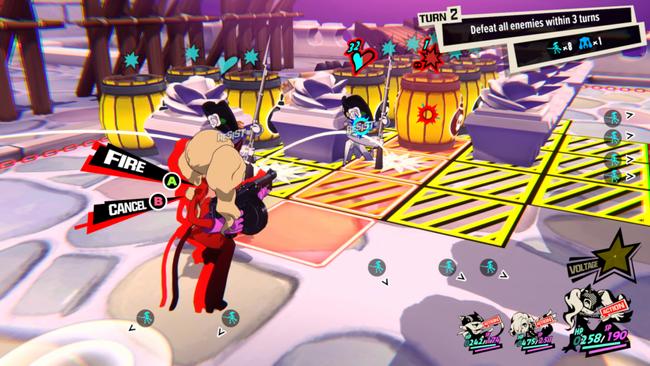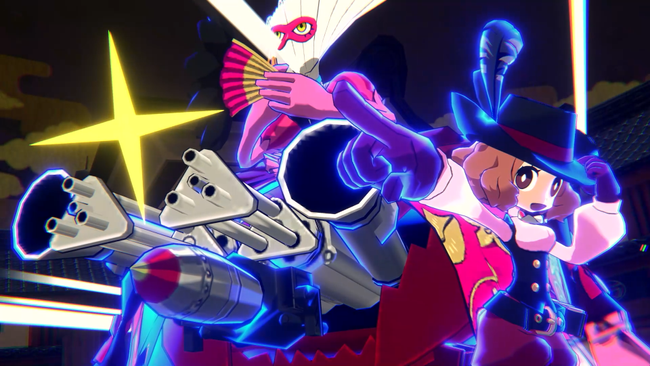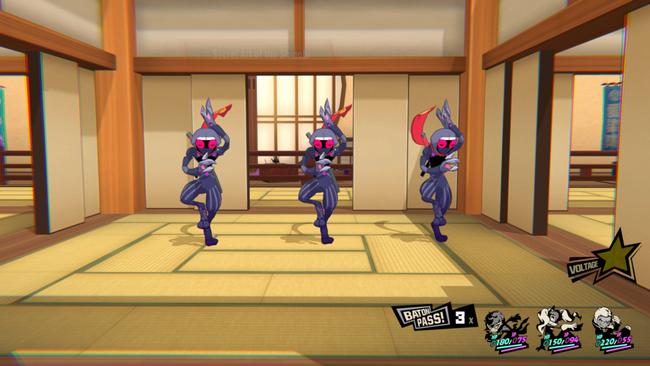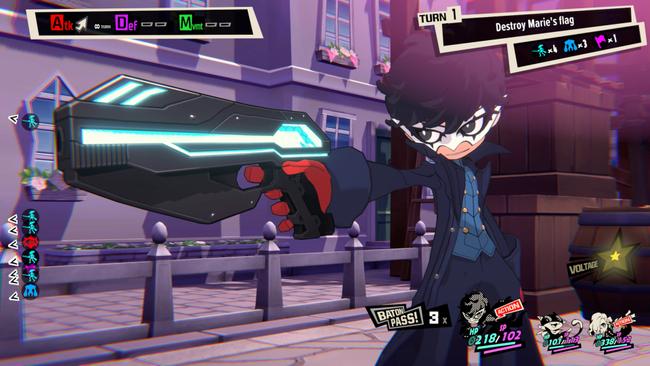
Persona 5 Tactica Review
It goes without saying that Persona as a series has had its fair share of spinoffs - and with Persona 5 Tactica, you can add "Tactical RPG" to the list of genres that the Phantom Thieves have tackled. This XCOM-like romp is better than some of the other detours that they've taken, but ultimately manages to fall just short from greatness - despite some solid level design, core gameplay mechanics, and a killer soundtrack.
First things first; if you've ever played a Persona spin-off, you probably know what to expect with Tactica's story. The core cast are whisked off for a new adventure, albeit one that doesn't fit into the canon events of Persona 5 and its sequel, Persona 5: Strikers. This time around, the Phantom Thieves become intertwined with the characters of Toshiro Kusukabe and Erina; and are thrust into freeing a cognitive Kingdom from its oppressors.

The story is fine, but never really grabbed me in a meaningful way; part of that is due to how lopsided the game's story appears to be. Without spoiling anything specific, it feels that the majority of the game's storytelling takes place within the opening hours of the game, and past the halfway point for the adventure it feels like despite the plot itself ramping up, the pacing of the story content and how its ultimately portrayed falters.
Thankfully, the majority of the focus for Tactica isn't this story, but rather the Tactical RPG gameplay. I already had a chance to preview Tactica during this year's Tokyo Game Show, and most of what I had to share then remains much the same with the final release. Crucially, level design is a strong point for the game, especially as the story progresses and new elements are added for players to engage with. Cover, Elevation, Switches and Cameras and all sorts of props to consider alongside the assortments of enemies you'll face.

Something I didn't have the chance to gauge during my preview was exactly how each Phantom Thieve might play differently compared to the rest of the cast; most of these differences come down to their choice of firearm, which have their own unique properties. Haru's grenade launcher can deal heavy damage to multiple enemies at once, while of course Morgana's slingshot might be more focused on range.
One correction I'll have to make from my preview is that Triple Threat attacks do not in fact have a range limitation; and one of the core elements of risk and reward comes from the danger of separating your three party members, for the ability to encompass more of the map into a Triple Threat. In addition to Triple Threats, players can also make use of their formations by utilizing follow-up attacks whenever they knock an enemy from a higher elevation down to the ground below whenever another party member is lying in wait nearby.
While on its Normal difficulty I never had any real challenge clearing story missions, it was still satisfying commanding my party like a proper team, and seeing how the game was deisgned around it. While level design and the essentials of combat are great, however, enemy design felt almost sanitary in comparison.

It's not that enemy design is poor, and in fact the enemies that are available are great - but the problem lies in the fact that by the midway point essentially all enemy types will have been introduced. While there are unique boss encounters that make use of the game's mechanics in unique ways, there are only so many of them in the game, and even for the reatively short runtime - I'd wager a normal playthrough will take most players around 20 hours - you can start to feel just how similar fights can turn out in the end. What certainly doesn't help matters is how the game showcases all of these different win criteria early on in the game, just for the latter half to devolve into the much simpler "kill every enemy on the map" objective.
As for Personas, they're mostly relegated to an accessory that you can equip to each character; with a set amount of HP, SP, Melee Damage and Gun Damage that they'll buff to whatever character they're equipped to. Every Persona has a skill attached to them, and when fusing Personas you can choose to bring a skill forward to the resulting creation. Later in the story, players can choose to instead fuse Personas into preset guns with different attributes, instead of purchasing basic weapons from Lavenza's store.

At the end of the day, Persona 5 Tactica is a solid game, with some unique ideas for the Tactical RPG genre; if you're a huge fan of Persona 5 and have been interested in getting into these types of games then you could do far worse than starting here, but part of me is disappointed that despite the game's strong start, that ultimately Tactica fails to follow-up on its most fascinating quirks. It's a good game, but with just that extra push it very easily could have been a great one. Maybe P-Studio will revisit the concept in the future - and I hope they will.